A concussion is a form of mild traumatic brain injury that typically occurs when a person suffers a direct hit to the head or a whiplash injury. This leads to coup and countercoup movement, where the outside force causes the brain to accelerate against the skull before decelerating and hitting the back of the skull.
These movements can lead to bruising and swelling of brain tissues. Damage to blood vessels and nerves may also happen.
To find out more about TBI check out our article: TRAUMATIC BRAIN INJURY (TBI): ARE YOU AT RISK?
Data from the Brain Injury Research Institute has shown that every year, approximately 10% of athletes who engage in contact sports sustain concussion injuries. Furthermore, 1.5 million people in the U.S. suffer from traumatic brain injuries, with at least 1 TBI case occurring every 15 seconds.
In some cases, the MRI or CT scan doesn’t show any abnormalities; however, the patient may experience various symptoms that indicate the concussion. Furthermore, the symptoms often don’t show up for hours or even days after the accident took place.
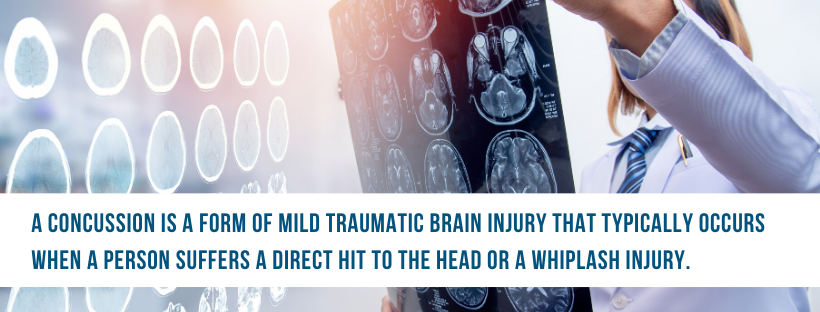
According to the Brain Injury Association of America, the symptoms may include, but are not limited to:
Many patients often fail to report the injury and the concussion remains undetected. Unfortunately, when the concussion is left untreated, it may take much longer to recover from it.
Although the severity of brain damage that patients sustain from concussions is mild, the consequences to health and wellbeing may not be. Without timely treatment, recovery might be slower. Therefore, if you have suffered any blow to the head, experts at Neulife Rehab and Brain Injury Center strongly recommend that you seek medical consultation.
This is extremely important as only medical experts can determine the full extent of the injury and the best course of treatment. Worse cases usually warrant a visit to a reputable post-acute rehab facility to help patients return to their pre-injury state in the soonest and safest possible time.
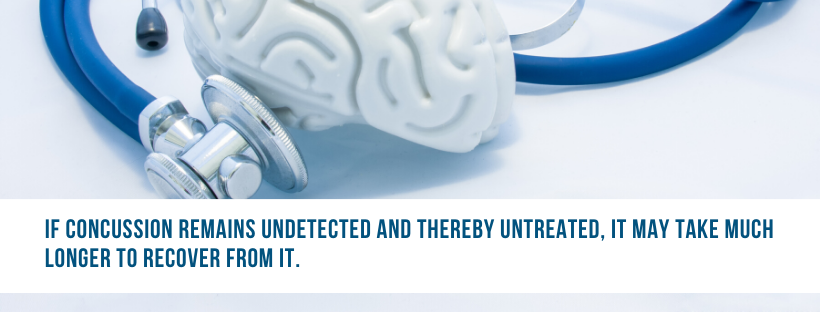
When you are on the road to full recovery, do not overexert yourself. Experts warn against returning to your normal physical activity until you are given the go-ahead by your doctor. If you sustain a second concussion without fully recovering from the first one, then this can have very serious health consequences.
At Neulife Rehab our team of qualified professionals helps our patients return to their pre-injury state through physical therapy, occupational therapy, and many other scientifically-proven rehabilitation practices. At first, you might find it harder to process information. However, this stage is temporary and you will see improvements as you continue with the rehabilitation.
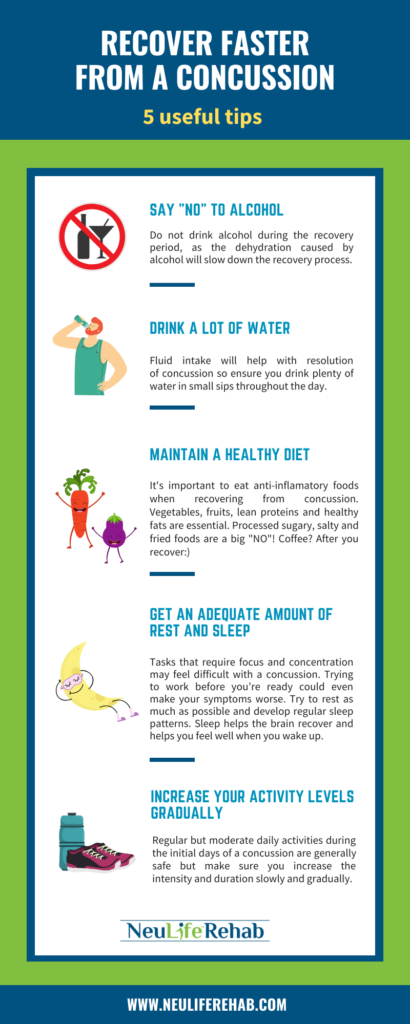
NeuLife Rehabilitation is one of the largest residential post-acute rehab programs specializing in rehabilitation for a wide range of catastrophic injuries. We are accredited by the Commission on Accreditation of Rehabilitation Facilities (CARF) in Brain Injury Specialty Programs and Residential Rehabilitation.
Our professional staff make sure that you and your family are being taken care of by the best specialists in the area. We encourage you to find out more about our facility and our programs. If you have any questions at all, we are here for you. Call us or make a referral using our easy to navigate and convenient online form. We are looking forward to helping you achieve your recovery goals.
The material contained on this site is for informational purposes only and DOES NOT CONSTITUTE THE PROVIDING OF MEDICAL ADVICE, and is not intended to be a substitute for independent professional medical judgment, advice, diagnosis, or treatment. Always seek the advice of your physician or other qualified healthcare providers with any questions or concerns you may have regarding your health
Neulife offers veterans rehabilitation at our brain injury residential facility. Whether your loved one suffers from PTSD, a TBI, or stroke, we can offer guidance and rehabilitation services to help them to reclaim their life.
The goal of post-acute rehabilitation for veterans with brain injuries is to improve not only your loved one’s health but also help prepare them for life at home, work, and within the community. With the help of a specialized rehabilitation team, an individualized road map to recovery will be developed.
At Neulife we value the education of family members so they can better understand their loved one’s diagnosis. Family involvement is critical to the success of patients once they return home. Often veterans have unique rehabilitation needs dependent upon certain medical diagnoses.
The advancement in medical technology has allowed many servicemen to survive severe injuries, but for many survival came at the cost of traumatic limb amputations and associated mental scarring, which, in itself may lead to devastating outcomes.
Apart from disabling physical injuries, veterans experience mental health disorders, substance abuse-related disorders, post-traumatic stress disorder (PTSD) and traumatic brain injury (TBI) at disproportionate rates compared to their civilian counterparts. Every day, an average of twenty American veterans commit suicide. The numbers are staggering and young veterans aged 18–44 are most at risk, according to the National Institutes of Health.
Military personnel exposed to the traumatic events of combat, assault, serious injury, and ultimately the threat of death, may have to deal with the consequences of such exposure long after the distressing event has ended or the threat has been removed.
Whether directly or indirectly witnessed, the experience is ingrained in the memory and often leads to traumatic event flashbacks, trouble sleeping, nightmares, anxiety, anger or susceptibility to alcohol and drug abuse.
When these symptoms persist and have long-lasting negative effects on one’s life it could be Post Traumatic Stress Disorder (PTSD). The rate of PTSD may be up to 15 times higher in active duty service members compared to civilians.
Center for Disease Control defines a traumatic brain injury (TBI) as a disruption in the normal function of the brain that can be caused by a bump, blow, or jolt to the head, or a penetrating head injury. TBI in military personnel usually results from close contact with an explosion, often in the form of a significant blow to the head or body.
Symptoms vary and depend on the severity of TBI, but may include headaches, fatigue or drowsiness, slurred speech, memory problems, mood changes, and mood swings, unusual behavior, convulsions, and seizures - according to the National Alliance of Mental Illness.
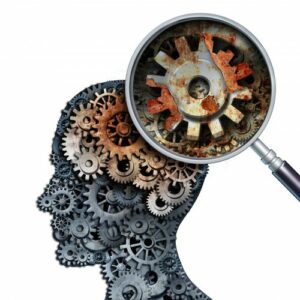
The number of veterans returning from overseas with a brain injury has risen from 10,000 in 2000 to approximately 20,000 today. It is likely due to a combination of identification and increased incidence. As a result, there is an increased need for rehabilitation for veterans.
Strokes are the fourth leading cause of death in the United States, accounting for 1 out of every 18 deaths.
A stroke is essentially an attack on an organ, similar to a heart attack, but on the brain. Blood supply to the brain is cut off usually due to a clot (ischemic stroke). The second type of stroke is a hemorrhagic stroke which causes bleeding in and around the brain. There are also transient ischemic strokes (TIA) which is a “mini-stroke” with symptoms that last less than 24 hours.
Veterans with mental health conditions have a higher risk of stroke. Specifically, anxiety, depression, psychosis, and bipolar disorder pose an increased risk.
Another study found young and middle-aged veterans with PTSD have an elevated risk of stroke. It is thought that exposure or memories of trauma increase inflammation in the body leading to an increased risk of clots leading to stroke. It is an area of growing public health concerns for veterans and other sufferers of PTSD.
Approximately 6,000 VA admissions are due to stroke and the costs are staggering:
Based on this research, it is imperative for mental health to be considered when evaluating the risk of one or repeat strokes in veterans.
The veteran’s administration recognizes the importance of stroke rehabilitation. Veterans qualify for assistance for post-acute rehabilitation. In order to qualify, they must have served 90 days in active duty during wartime and meet pension requirements.
As a registered residential treatment facility through the VA Choice Program, and an organization managed and operated by many Veterans, our dedication to those who have served our country runs deep. Our plans for Veterans range from residential rehabilitation to tailored outpatient services.
NeuLife’s residential rehabilitation provides personalized care to treat the difficult challenges of TBI and PTSD with the singular purpose of achieving the best possible outcome for the Veterans. Our post-acute rehab programs and care plans, guided by an interdisciplinary team of clinical experts, are structured to promote the highest level of functional independence and successful community re-integration.
In addition to individualized treatments, we also work closely with relatives to address issues that may affect the family as a whole. We proudly accept referrals from the Veterans Administration (VA).
If your loved one is in need of a neurological rehabilitation center, Neulife can offer the guidance, support, and assistance you need. We offer a customized neuro rehabilitation program depending on specific patient needs.
Programs are designed to optimize patient coordination, strength, movement, balance, muscle function, and overall wellness. The end goal of post-acute rehabilitation is for your loved one to regain functioning and independence, with improvement in overall quality of life.
To learn more about post acute rehab and residential veterans rehabilitation contact us, or schedule a tour! Call us at 800-626-3876, or send us an email on info@neuliferehab.com. Visit us at 2725 Robie Avenue, Mount Dora, Florida 32757.
The material contained on this site is for informational purposes only and DOES NOT CONSTITUTE THE PROVIDING OF MEDICAL ADVICE, and is not intended to be a substitute for independent professional medical judgment, advice, diagnosis, or treatment. Â Always seek the advice of your physician or other qualified healthcare providers with any questions or concerns you may have regarding your health.
A traumatic brain injury (TBI) can lead to many physical problems like impaired memory, frequent headaches, dizziness, and balance issues. However, TBI may also cause personality changes and this is something that many patients grapple with.
Fifty-nine percent of the subjects in a study in the Archives of Physical Medicine and Rehabilitation presented significant personality change after experiencing a traumatic brain injury. The most obvious of these changes include "neuroticism, extraversion, and conscientiousness," particularly in patients with frontal and temporal lesions.
In a more recent study published in the American Journal Health of Behavior, students active in sports who have experienced concussion showed a higher risk for depressive symptoms, self-harm, and poor mental health. Thus, a psychological evaluation following a TBI is essential to facilitate a better treatment plan for the patient.
Scientists cannot pinpoint the exact reason why traumatic brain injuries can change one's personality. However, experts in neuro-rehab widely believe that TBI affects the intricate connections between the cerebral cortex and the limbic system.
The cerebral cortex helps the brain process memory, cognition, perception, and awareness. The limbic system, located below the cerebral cortex, is the center for brain functions like emotions and behaviors.
Experts at the NYU Langone Medical Center say that only 10 to 20 percent of patients may develop mood and anxiety problems after one concussion. This is a small but otherwise significant minority.
Some experts in post-acute rehabilitation also believe that patients who experience TBI are already in an exceptionally stressful situation. People respond to any form of extreme trauma in the body differently.
Some TBI survivors may end up doing or saying things they don’t mean while other patients become more emotional than they were before they suffered a TBI.
Some patients present heightened aggression and quickly become frustrated and short-tempered. For others, the changes could be subtle and less significant.
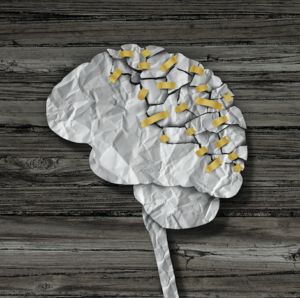
Needless to say, it's challenging for many patients to recover from a traumatic brain injury. It's important, however, to recognize the emotion, and understand why these changes happen, to prevent a full-blown mental illness.
Families or friends around the patient must also be sensitive to these changes. Support from a professional is also paramount as therapy and neuro-rehab may help the patient manage and even correct these personality changes.
NeuLife is a Residential Post-Acute Rehab facility specializing in brain injury rehabilitation. As one of the post-acute rehabilitation centers in Florida, its program includes physical medicine and rehabilitation, medical management, psychiatric and neuropsychological services, physical, occupational, speech, and cognitive therapies, behavioral, dietary and vocational counseling, and more.
Beautifully situated on 43 acres in Mount Dora, Florida, its inpatient rehab facility comprises over 60,000 square feet and contains 54 private rooms or suites. If you would like more information about NeuLife Rehabilitation Services, please contact us.
The material contained on this site is for informational purposes only and DOES NOT CONSTITUTE THE PROVIDING OF MEDICAL ADVICE, and is not intended to be a substitute for independent professional medical judgment, advice, diagnosis, or treatment. Always seek the advice of your physician or other qualified healthcare providers with any questions or concerns you may have regarding your health.
A brain aneurysm is a silent killer. It doesn’t come with any signs or symptoms until it ruptures, which is a life-threatening situation. Also called cerebral aneurysm, this condition affects 1 in every 50 Americans. It is greatly linked to high blood pressure -- the leading cause of stroke, heart disease, and death in the United States.
In the first part of this blog series, we talked about the signs and symptoms of ruptured and unruptured brain aneurysm and their differences in terms of prognosis and survivability. Now, we’re going to delve deeper into the pathology that leads to the development of brain aneurysm, the causes, risk factors, and prevention tips.
Even after surviving a ruptured brain aneurysm, it takes teamwork between the healthcare team and the patient to achieve a full recovery, according to experts in Neulife post acute rehabilitation facility.

The following factors can predispose you to have a brain aneurysm:
Atherosclerotic arteries, smoking, and high blood pressure can all damage the wall of the arteries in the brain. When the structural integrity of the arterial wall is damaged, the body will initiate an inflammatory response to that area. It will flood the damaged area with macrophages and white blood cells.
This reaction will change the function of the cells in the artery from contractile to pro-inflammatory, which leads to a decrease in the number of smooth muscle cells in the area and thinning of the arterial wall.
A thin arterial wall is weak and can dilate or balloon from the pressure exerted by the arterial blood, leading to a brain aneurysm.
Brain aneurysms cannot always be prevented. However, there are certain tips that you can do to lower your risk.
Since brain aneurysms are greatly linked to cigarette smoking and hypertension, a lifestyle change can be of great benefit to patients. Other actionable health tips include:
When a brain aneurysm ruptures, patients usually feel a sudden, severe, blinding headache. Other symptoms to watch out for include:
Patients who manifest these symptoms must be brought to the nearest emergency room, as this is a life-threatening situation.
Patients who survive will have to undergo neuro rehab and post acute rehabilitation. The recovery period may take a few months to years.
NeuLife is a Residential Post-Acute Rehab facility specializing in brain injury rehabilitation. As one of the post acute rehabilitation centers in Florida, its program includes physical medicine and rehabilitation, medical management, psychiatric and neuropsychological services, physical, occupational, speech, and cognitive therapies, behavioral, dietary and vocational counseling, and more.
Beautifully situated on 43 acres in Mount Dora, Florida, its inpatient rehab facility comprises over 60,000 square feet and contains 54 private rooms or suites. If you would like more information about NeuLife Rehabilitation Services, please contact us.
The material contained on this site is for informational purposes only and DOES NOT CONSTITUTE THE PROVIDING OF MEDICAL ADVICE, and is not intended to be a substitute for independent professional medical judgment, advice, diagnosis, or treatment. Always seek the advice of your physician or other qualified healthcare providers with any questions or concerns you may have regarding your health.
A brain aneurysm, medically known as a cerebral aneurysm, develops when a weakened part of a brain artery bulges out, creating a pocket filled with blood. Whether big or small, this ballooned spot in the artery can press on the tissues surrounding it. If the brain aneurysm ruptures, bleeding will occur, a condition known as a hemorrhagic stroke.
The exact number of Americans with a brain aneurysm is hard to determine, as the condition doesn’t usually come with obvious signs and symptoms. However, researchers estimate that around 3-5% of Americans develop brain aneurysms.
According to the National Institute of Neurological Disorders and Stroke, around 30,000 people in the United States suffer from a ruptured brain aneurysm every year. Patients who survive will need to undergo neuro rehabilitation to help with their recovery.
Unruptured brain aneurysm
A small, unruptured brain aneurysm doesn’t usually have signs and symptoms. However, a large aneurysm, which measures between 11 to 25 millimeters, can exert pressure on adjacent tissues and nerves, leading to the following manifestations:
Ruptured brain aneurysm
When an aneurysm ruptures, it can lead to life-threatening conditions such as brain injury, stroke, coma, and death. Therefore, if you observe any of the following symptoms, seek immediate medical attention:
According to the Brain Aneurysm Foundation, the recovery period for patients who survived a ruptured brain aneurysm is harder and longer compared to patients with an unruptured brain aneurysm. Choosing a Neuro Rehab facility is a crucial part of the process, as this plays an important role in every patient’s road to recovery.
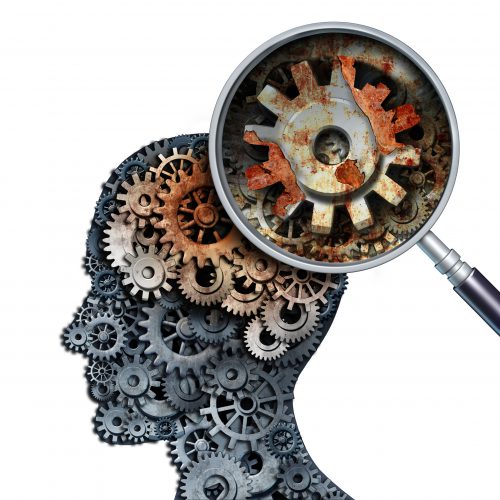
NeuLife is a Residential Post-Acute Rehab facility specializing in brain injury rehabilitation. As one of the best brain injury rehabilitation centers in Florida, its program includes physical medicine and rehabilitation, medical management, psychiatric and neuropsychological services, physical, occupational, speech, and cognitive therapies, behavioral, dietary and vocational counseling, and more.
Beautifully situated on 43 acres in Mount Dora, Florida, its inpatient rehab facility comprises over 60,000 square feet and contains 54 private rooms or suites. If you would like more information about NeuLife Rehabilitation Services, please contact us.
The material contained on this site is for informational purposes only and DOES NOT CONSTITUTE THE PROVIDING OF MEDICAL ADVICE, and is not intended to be a substitute for independent professional medical judgment, advice, diagnosis, or treatment. Always seek the advice of your physician or other qualified healthcare providers with any questions or concerns you may have regarding your health.
Falls are a growing problem. Oftentimes a fall causes functional impairments, increased pain, decreased activity, and reduced quality of life. Reports show that falls are the most common cause of traumatic brain injuries (TBIs), accounting for more than 49% of TBIs among children, and 81% among adults aged over 64 years. Falls also contribute to about 31% of all spinal cord related injuries and are the leading cause of injury-related emergency department visits for older adults.
Considering that around 50% of older adults do not resume independent living after sustaining an injury in a fall, it is crucial to seek post-acute rehabilitation after a fall occurs. We never plan for falls to happen and even more so we cannot predict their severity. Therefore, at Neulife Rehabilitation we believe prevention is key, and today we will talk more about just that!
According to the American Physical Therapy Association, a fall is an unexpected event in which the person comes to contact with the ground, floor or lower level. It is also important to clarify that a fall was not the result of someone’s purposeful action like a push, or of a medical event, such as a heart attack.
The first step in successful prevention is to understand what makes you more likely to sustain a fall. Research shows that the cumulative effect of multiple interacting factors increases the risk of a fall. Therefore, our post-acute rehab specialists have compiled a list of fall risk factors for you to look out for.
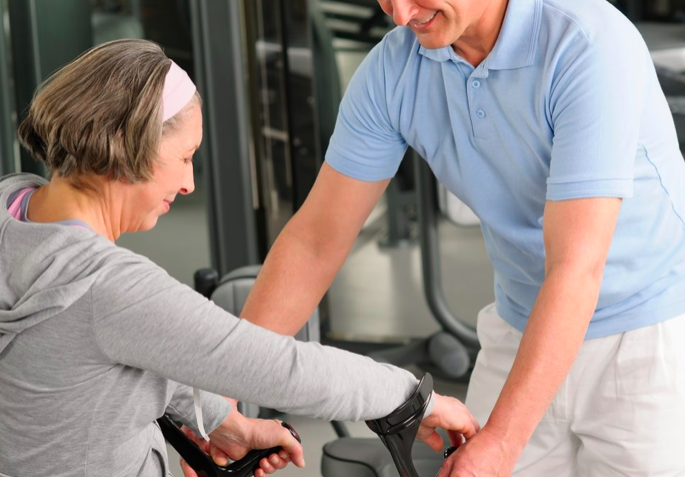
If any of the above are relevant to you and you have not yet consulted a doctor about them, do so immediately!
A physical therapist (PT) can conduct assessments to determine your level of fall risk and identify limitations. PTs can develop a personalized program that is comprehensive to improve strength, balance, endurance, speed, reactions/coordination, and confidence with movement while performing daily activities. If you would like to learn more about how a PT can help you improve your quality of life, do not hesitate to contact us.
NeuLife Rehabilitation is one of the LARGEST residential post-acute rehabilitation facilities in the Southeast with specialized rehabilitation programs for a wide range of catastrophic injuries. We are accredited by the Commission on Accreditation of Rehabilitation Facilities (CARF) in Brain Injury Specialty Programs and Residential Rehabilitation.
Our skilled clinical experts work with each patient individually to create a customized rehabilitation program best suited to the patient’s needs. Every day we work with the goal of providing our patients with the highest quality of care. We believe that healing, wellness, and personal fulfillment are best accomplished in a positive and uplifting therapeutic environment where staff encourage, assist, and support all of their patients. And that is what we do!
To learn more about our facility, our staff and our work contact us, or schedule a tour! You can call us at 800-626-3876, or send us an email on info@neuliferehab.com. Find us at 2725 Robie Avenue, Mount Dora, Florida 32757.
The material contained on this site is for informational purposes only and DOES NOT CONSTITUTE THE PROVIDING OF MEDICAL ADVICE, and is not intended to be a substitute for independent professional medical judgment, advice, diagnosis, or treatment. Always seek the advice of your physician or other qualified healthcare providers with any questions or concerns you may have regarding your health.
Brain injury is incredibly common in the United States, with a staggering 2.8 million Americans sustaining TBI annually - and TBI is just one category of brain injury. However, most TBIs experienced are mild, commonly called concussions. Additionally, nearly 90% of people affected by TBI are treated and released from an emergency department. What happens then? If the patient is still showing TBI symptoms - emotional, physical, or cognitive - they should reach out to our rehabilitation center. At NeuLife, our TBI rehabilitation programs are designed to promote recovery to the highest level of functional independence and successful community reintegration.
Now that you know how prevalent TBI is in the US, let us go deeper into what TBI actually is.
Traumatic Brain Injury (TBI) is just a subgroup of brain injury. Generally, brain injury is categorized as pre birth or acquired. The former refers to an injury, which is hereditary, congenital, degenerative, or introduced by birth trauma. Whereas, acquired brain injury (ABI) appears after birth, commonly due to external factors. ABI can then be divided into three different types:
Physicians specialized in brain injury can provide effective and comfortable brain injury rehab to patients suffering from all types and severities of brain injury.
TBI is sustained as a result of external trauma, such as a fall or motor vehicle accident. However, as the CDC explains, certain societal groups are most at risk. According to the data from 2014, the factor that makes you most at risk of sustaining TBI is your age. Also, people in different age groups are at the highest risk of sustaining a different type of TBI.
They found that the highest rate of deaths, hospitalizations, and ED visits was experienced by persons 75 years of age and older - ED visit rates were also highest for children 0-4 years old.
Overall, falls are the leading cause of TBI-related death, hospitalization and ED visits. Adults 55 years of age and older are at the highest risk across all severity levels. However, children aged 0 to 4, and 0 to 17 were also at the highest risk of TBI-related ED visits, and hospitalizations, respectively.
As we age, we are exposed to different environments and our lifestyles change. Therefore, motor vehicle crashes were the leading cause of death for persons 15-34 and older adults aged ≥75 years, and of hospitalization for persons aged 15 to 44 years of age. Whereas, children aged 5 to 14 years old experienced the most TBI-related ED visits due to being struck by, or against an object.
Remember, if you need assistance and support with recovering from TBI, regardless of the severity level, contact our TBI rehabilitation center. We are experts in providing physical, emotional and psychological treatments to make your everyday activities easier and more fulfilling.
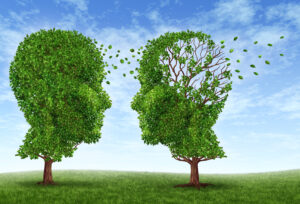
NeuLife Rehabilitation is one of the LARGEST residential brain injury rehabilitation facilities in the Southeast with specialized rehabilitation programs for a wide range of catastrophic injuries. We are accredited by the Commission on Accreditation of Rehabilitation Facilities (CARF) in Brain Injury Specialty Programs and Residential Rehabilitation. Our skilled clinical experts work with each patient individually to create a customized rehabilitation program best suited to the patient’s needs.
Every day we work with the goal of providing our patients with the highest quality of care. We believe that healing, wellness, and personal fulfillment are best accomplished in a positive and uplifting therapeutic environment where staff encourage, assist, and support all of their patients. And that is what we do!
To learn more about our facility, our staff and our work contact us, or schedule a tour! You can call us at 800-626-3876, or send us an email on info@neuliferehab.com. Find us at 2725 Robie Avenue, Mount Dora, Florida 32757.
The material contained on this site is for informational purposes only and DOES NOT CONSTITUTE THE PROVIDING OF MEDICAL ADVICE, and is not intended to be a substitute for independent professional medical judgment, advice, diagnosis, or treatment. Always seek the advice of your physician or other qualified healthcare providers with any questions or concerns you may have regarding your health.
Brain injuries are incredibly common in the United States and they can be differentiated by their origin into two categories: before birth injury, and acquired brain injury (ABI). ABI is further divided into 3 groups: traumatic (TBI), mild-traumatic, and non-traumatic. In the United States alone the number of TBI- related emergency department visits, hospitalizations, and deaths increased by 53% between 2006 and 2014.
Survivors of brain injury can face adverse effects that last a few days, or for the rest of their lives. These effects can include impairments to cognitive abilities, memory, movement, sensation, or emotional functioning. And they affect the impaired person’s friends and family. However, do not worry! At our brain injury facility we provide a variety of treatments to support our patients’ path to recovery. Now, let me run you through what it is that our rehabilitation centers offer that you won’t find anywhere else!
We can confidently say that we are one of the best brain injury rehabilitation centers because of our fantastic staff. We have collectively OVER 200 YEARS of clinical rehabilitation experience. But it is not only our experience, nor the certifications that make us stand out. Every member of our staff is dedicated to their roles in promoting healing, wellness and personal fulfillment to our patients and their loved ones. And we know that it is best achieved in a positive and uplifting environment, filled with encouragement, support, and assistance. To read more about our team, click here.
The goals of brain injury rehabilitation are to improve the patients’ capacity to function at home and in society and assist their loved ones in caring for the patient. In 1998 the Consensus Development Panel from the Consensus Development Conference on Rehabilitation of Persons with Traumatic Brain Injury suggested for brain injury rehabilitation programs to:
And our programs do that, and more! We design our programs in a way that will give our patients attainable and sustainable outcomes. This is one of our strengths as our programs have been nationally recognized by multiple organizations. Take for instance our Commission on Accreditation of Rehabilitation Facilities (CARF) Accredited Residential Rehabilitation Program and Brain Specialty Program.
The NeuLife Rehabilitation facility is one of the largest brain injury centers in the Southeast, situated on 43 rolling acres of rural land in Florida. Our brain injury facility does not feel like other conventional residential rehab facility thanks to its home-like atmosphere. We embrace the belief that by creating a comfortable environment for our brain injury rehabilitation program patients, we allow them to focus on their journey of healing and achieving their recovery goals. Located in the beautiful landscape of Mount Dora in Florida, our modern facility contains 54 private suites with access to spacious common areas and facilities, such as:
To find out more about what our facility has to offer, visit Our Facility - Brain Injury Facility page.
NeuLife Rehabilitation is one of the LARGEST residential brain injury rehabilitation facilities in the Southeast with specialized rehabilitation programs for a wide range of catastrophic injuries. We are accredited by the Commission on Accreditation of Rehabilitation Facilities (CARF) in Brain Injury Specialty Programs and Residential Rehabilitation. Our skilled clinical experts work with each patient individually to create a customized rehabilitation program best suited to the patient’s needs.
Every day we work with the goal of providing our patients with the highest quality of care. We believe that healing, wellness, and personal fulfillment are best accomplished in a positive and uplifting therapeutic environment where staff encourage, assist, and support all of their patients. And that is what we do!
To learn more about our facility, our staff and our work contact us, or schedule a tour! You can call us at 800-626-3876, or send us an email on info@neuliferehab.com. Find us at 2725 Robie Avenue, Mount Dora, Florida 32757.

The material contained on this site is for informational purposes only and DOES NOT CONSTITUTE THE PROVIDING OF MEDICAL ADVICE, and is not intended to be a substitute for independent professional medical judgment, advice, diagnosis, or treatment. Always seek the advice of your physician or other qualified healthcare providers with any questions or concerns you may have regarding your health.
We live in a world where accidents are inevitable. Some smaller accidents happen every day - a paper cut, walking into a cabinet, dropping something, and their consequences are very petite. However, some people experience severe accidents in their lives that can flip their everyday upside down and cause tremendous health issues. For instance, vehicle accidents and sports injuries can lead to acute injuries, injuries that occur suddenly as a result of intense trauma, impact or torsion. A band aid for these kinds of injuries is not enough. People affected by those must be immediately transported to an acute care facility, where their condition will be managed to a point where it is relatively stable.
What happens next? This is where our fantastic post acute rehab programs come in! Our rehab center is perfectly designed to help people recover from an acute injury. Now, let us explain to you in more detail what it is that our amazing multi-speciality staff do.
Acute injuries are those that are caused suddenly as a result of an intense trauma, impact, or torsion. The most common causes of acute injuries are sports and motor vehicle accidents. Acute injuries range all the way from broken bones and sprains, to brain injuries, spine injuries, strokes and neurological disorders.
Therefore, post acute rehab refers to the medical treatment program aimed at returning acute injury patients back to, or as close to as possible, to their pre-injury state. The term “post acute” implies that the patient was discharged from an acute care hospital, or facility. This is the situation more than 10 million Americans find themselves in each year.
The services offered by our post acute rehab program are customised to the needs of the individual patients as each injury and each patient differ. Some patients whom enter our rehabilitation center receive acute care as they come here instead of a hospital.

Our NeuLife Rehabilitation clinic specializes in post acute rehabilitation programs for catastrophic injuries, which means we do not often deal solely with common everyday acute injuries like sprains, or muscle tears. Our residential facility is perfect for patients dealing with severe neurological trauma. We offer our services in two types of programs - your doctor will decide which program you belong to depending on your circumstances:
NeuLife Rehabilitation is one of the LARGEST residential post-acute rehabilitation facilities in the Southeast with specialized rehabilitation programs for a wide range of catastrophic injuries. We are accredited by the Commission on Accreditation of Rehabilitation Facilities (CARF) in Brain Injury Specialty Programs and Residential Rehabilitation. Our skilled clinical experts work with each patient individually to create a customized rehabilitation program best suited to the patient’s needs. Everyday we work with the goal of providing our patients with the highest quality of care. We believe that healing, wellness and personal fulfillment are best accomplished in a positive and uplifting therapeutic environment where staff encourage, assist, and support all of their patients. And that is what we do!
To learn more about our facility, our staff and our work contact us, or schedule a tour! You can call us at 800-626-3876, or send us an email on info@neuliferehab.com. Find us at: 2725 Robie Avenue, Mount Dora, Florida 32757.
The material contained on this site is for informational purposes only and DOES NOT CONSTITUTE THE PROVIDING OF MEDICAL ADVICE, and is not intended to be a substitute for independent professional medical judgment, advice, diagnosis, or treatment. Always seek the advice of your physician or other qualified healthcare provider with any questions or concerns you may have regarding your health.
Many of us are so overwhelmed by the process of TBI diagnosis, treatment, and traumatic brain injury rehab, that we don’t even think to ask the important questions, or understand everything that the doctor says. A good physician will explain the tests, the diagnosis and the necessary rehabilitation in layman’s term. But, some won’t, or maybe the stress of the visit will make you forget as soon as you leave the office.
In Part 1 of this Guide, we explained some of these terms, especially the ones concerning functions and skills. In Part 2, we defined the terms related to some of the symptoms of TBI. Today, in Part 3, we’ll talk about the glossary concerning medication used to treat TBI.
Medication used to decrease the possibility of a seizure (e.g., Dilantin, Phenobarbital, Mysoline, Tegretol).
Medication used to treat depression.
Medication used mainly to slow down the heart, by blocking the action of hormones like adrenaline. Commonly used beta-blockers include:
Neuroleptics, also known as antipsychotic medications, are used to treat and manage symptoms of many psychiatric disorders. They can be divided into two classes: first-generation (“typical" antipsychotics) and second-generation (“atypical" antipsychotics).
Antiepileptic drugs (commonly known as anticonvulsants or antiseizure drugs) are a varied group of pharmacological agents used in the treatment of epileptic seizures. Many seem to act as mood stabilizers and are used for the treatment of neuropathic pain.
Watch this film by Speed Pharmacology about antiepileptics –“Pharmacology - ANTIEPILEPTIC DRUGS (MADE EASY)”, to find out more:
May be used for pain relief and pain management.
May lessen feelings of uncertainty, nervousness, and fear.
May be used to prevent blood clots.
May be used to reduce muscle spasms or spasticity.
May be used to induce sleep or depress the central nervous system in areas of mental and physical response, awareness, sleep, and pain.
May be used to increase attention and alertness.
Amantadine belongs to the class of medications called adamantanes. It is thought to work to control movement problems by increasing the amount of dopamine in certain parts of the body.
Remember, when you talk to your doctor about taking any of these, or other drugs, mention what other prescription and nonprescription medications, vitamins, nutritional supplements, and herbal products you are taking, or plan to take.
Stay tuned for the fourth part of this TBI glossary guide.
NeuLife Rehabilitation is one of the best TBI rehab centers with specialized catastrophic rehabilitation programs for a wide range of catastrophic injuries.
Our programs for traumatic brain injury rehabilitation are customized to meet the individual needs of each patient. Our care plans are structured to promote the highest level of functional independence and successful community reintegration. Through the skills and experience of our highly trained team of clinical experts, we are able to treat a wide range of diagnoses and injuries at our brain injury rehab facility.
If you have any more questions concerning neuro rehab, brain injury rehab, or any other issue regarding traumatic brain injury rehabilitation, call us to make an appointment today. You can also schedule a tour to visit our best brain injury facility.
Sources:
https://www.headinjury.com/tbiglossary.htm
https://www.biausa.org/brain-injury/about-brain-injury/treatment/medications
The material contained on this site is for informational purposes only and DOES NOT CONSTITUTE THE PROVIDING OF MEDICAL ADVICE, and is not intended to be a substitute for independent professional medical judgment, advice, diagnosis, or treatment. Always seek the advice of your physician or other qualified healthcare providers with any questions or concerns you may have regarding your health.
Many of us are so overwhelmed by the process of TBI diagnosis, treatment, and traumatic brain injury rehab, that we don’t even think to ask the important questions or understand everything that the doctor says. A good physician will explain the tests, the diagnosis and the necessary rehabilitation in layman’s terms, but some won’t, or maybe the stress of the visit will make you forget as soon as you leave the office.
In Part 1 of this Guide, we’ve explained some of these terms, especially the ones concerning functions and skills. Today, in Part 2, we’ll explain more terms, concerning some of the symptoms of TBI.
Failure to recognize familiar objects although the sensory mechanism is intact. May occur for any sensory modality.
Lack of oxygen to the brain.
The inability to produce voluntary speech due to a deficit in motor (muscle) programming caused by brain damage.
Loss of the capability to perform learned determined movements, regardless of having the will to perform the movements.
A problem of muscle coordination not due to apraxia, weakness, stiffness, spasticity or sensory loss. Triggered by lesion of the cerebellum, or basal ganglia. It can affect a person’s ability to walk, talk, eat and to execute other self-care tasks.
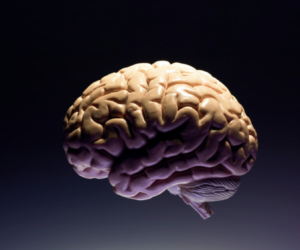
A state in which a patient is bewildered, perplexed, or incapable to self-orient.
Incapability to control impulsive behavior and emotions.
A problem in forming words, or articulating them because of the weakness of muscles used in speaking. Speech is characterized by slurred, imprecise enunciation. Tongue movements are usually labored and the rate of speaking may be very slow. Voice
quality may be irregular, frequently disproportionately nasal; volume may be low; drooling may transpire. Dysarthria may go together with aphasia, or occur on its own.
Difficulty in swallowing. It also comprises a struggle to move material from the mouth to the stomach. This definition also includes difficulty in positioning food in the mouth.
A state of tiredness; the loss of strength or stamina.
Group of symptoms after a concussion that may consist of memory changes, mood swings, poor concentration, headaches, faintness, depression, and nervousness.
Partial loss of function all four extremities of the body.
Loss of function of any injured or diseased cervical spinal cord section, influencing all four body extremities.
Uncontrolled discharge of nerve cells which may spread to other adjacent cells or all over the brain. It typically lasts only a few minutes. It may be accompanied by loss of consciousness, loss of bowel and bladder control and tremors. May also cause hostility, and other behavioral deviations.
Involuntary increase in muscle tone that occurs following injury to the brain or spinal cord, causing muscles to resist being moved.
Condition in which the person doesn’t speak, follow commands, or give any response that is psychologically meaningful.
Stay tuned for the third part of this TBI glossary guide.
NeuLife Rehabilitation is one of the best TBI rehab centers with specialized catastrophic rehabilitation programs for a wide range of catastrophic injuries.
Our programs for traumatic brain injury rehabilitation are customized to meet the individual needs of each patient, and care plans are structured to promote the highest level of functional independence and successful community reintegration. Through the skills and experience of our highly trained team of clinical experts, we are able to treat a wide range of diagnoses and injuries at our brain injury rehab facility.
If you have any more questions concerning neuro rehab, brain injury rehab, or any other issue regarding traumatic brain injury rehabilitation, call us to make an appointment today. You can also schedule a tour to visit our best brain injury facility.
Sources:
https://www.headinjury.com/tbiglossary.htm

The material contained on this site is for informational purposes only and DOES NOT CONSTITUTE THE PROVIDING OF MEDICAL ADVICE, and is not intended to be a substitute for independent professional medical judgment, advice, diagnosis, or treatment. Always seek the advice of your physician or other qualified healthcare providers with any questions or concerns you may have regarding your health.
Acquired brain injury refers to any type of brain damage that happens after birth. Causes of ABI include disease, blows to the head, alcohol and drug use, or oxygen deprivation.
ABI does not entail damage to the brain resulting from neurodegenerative disorders.
Coping with the outcomes of acquired brain injury can be challenging for everyone, including family members.
In July this year, Springer has published a new, improved edition of a comprehensive book called “Acquired Brain Injury: An Integrative Neuro-Rehabilitation Approach”. It can be of interest to all healthcare professionals in the field of neurology, and specifically ABI (Acquired Brain Injury), as well as ABI survivors and their families.
The book presents a comprehensive interdisciplinary team approach to the rehabilitation of acquired brain injury (ABI) survivors. Medical and clinical specialists will receive a deeper understanding of not only each other’s roles but of their corresponding roles in this field.
In this publication, you will find, among many subjects:
"Acquired Brain Injury: An Integrative Neuro-Rehabilitation Approach" 2nd edition provides evidence and context concerning the rehabilitation goals and processes for rehabilitation specialists, interdisciplinary students of neuro rehabilitation and practicing clinicians.
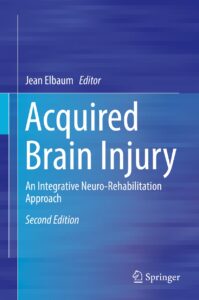
Many case examples are provided, illustrating a wide spectrum of challenges and steps of recovery. This edition features 3 completely new chapters and various updated chapters by new and returning authors (with Jean Elbaum as the editor).
NeuLife Rehabilitation is one of the largest residential post-acute rehabilitation facilities in the Southeast with specialized neuro rehabilitation programs for a wide range of catastrophic injuries.
Our programs for neuro rehab are customized to meet the individual needs of each patient, and care plans are structured to promote the highest level of functional independence and successful community reintegration. With the skills and experience of our highly trained team of clinical experts, we are able to treat a wide range of diagnoses and injuries at our brain injury facility.
If you have any more questions concerning neuro rehab, brain rehab, or any other issues regarding brain injury, call us to make an appointment today. You can also schedule a tour to visit our brain injury facility.
Source:
https://www.springer.com/gp/product-marketing-tool/flyer/9783030166120?downloadType=PRODUCTFLYER
The material contained on this site is for informational purposes only and DOES NOT CONSTITUTE THE PROVIDING OF MEDICAL ADVICE, and is not intended to be a substitute for independent professional medical judgment, advice, diagnosis, or treatment. Always seek the advice of your physician or other qualified healthcare providers with any questions or concerns you may have regarding your health.

We know that choosing the next step in your recovery from a catastrophic illness or injury is complex. Together, we can help you take the next step.
Contact us with any questions today.